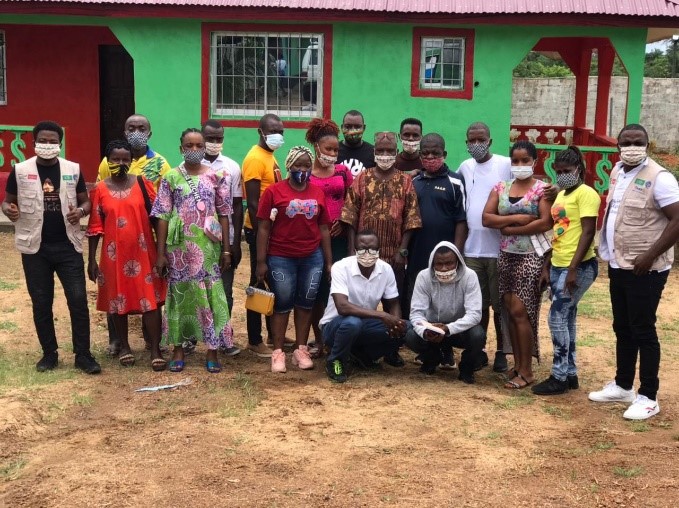
In continuation of its decentralization processes, the Multi-Actor Platform for Land Governance in Liberia (MAP LIBERIA LAND PLATFORM) has completed an intensive two days Training of Trainers workshop for representatives of community-based organizations and members of Community Land Development Management Committees (CLDMC) on processes and procedures for customary land formalization.
The TOT workshop which took place from Thursday, August 12 – Friday, August 13, 2021 was held in Bo – Waterside, Grand Cape Mount County, drawing 21 participants from seven (7) communities in Bomi and Grand Cape Mount counties; as those counties are two (2) of the three (3) western region counties where land formalization programs are actively ongoing.
Why this training?
Liberia’s land reform process has been at a crossroads. Following the passage of the Land Rights Act (LRA) in 2018, the focus has since been shifted to implementation of the law. Several Civil Society Organizations (CSOs), international partners and the Liberia Land Authority have made some laudable efforts towards supporting communities through land formalization interventions, land rights awareness, drafting of regulations and guidelines to address key provisions of the law, and the setting up of institutional structures.
There is now increasing number of Civil Society Organizations (CSOs) in the land sector that are piloting customary land formalization, and more than 100 communities across the country have gone far and almost at the point of seeking legal papers the from government to secure their claims. Once the regulations and guidelines are finalized and validated, most communities that are already far ahead will have the opportunity to complete the process and obtain legal titles to their lands.
However, despite this progress there are still more to be done in educating other communities on the law and the steps and procedures required for them to formalize their land. Additionally, the Land Authority has not been able to decentralize its presence and structures across the 15 sub-divisions of the country.
Also, there has been no county land boards, Alternative Land Dispute Structures and other technical support systems in these counties as required by the LRA. Based on these challenges and many others, the land reform process has been at a crossroads.
With such training of trainers now been conducted and coupled with other ongoing efforts, major CBOs and CLDMCs will have increased knowledge on the various steps and procedures on customary land formalization. The participating communities and CBOs have also gained some insights and technical knowledge on mapping, surveying and boundary harmonization as parts of the training package.
Other objectives of the training workshop were: to provide an overview of the legal frameworks that protect customary land rights including national and international instruments, to highlight ongoing land formalization programs in these communities and their level of formalization and also for the ccommunities and CBOs to have initial understanding about the MAP Platform and its decentralization processes.
About the MAP:
The MAP Liberia Land Platform is a nationally owned process initiated in February, 2018, by the Liberia Land Authority (LLA) and Civil Society Organizations (CSOs) spearheaded by Rights and Rice Foundation (RRF). The platform brings together various actors and stakeholders including land, environment and agriculture related agencies of government, private sector institutions, Civil Society Organizations, Community Based Organizations, Academia and Research Institutions; as well as international development partners.






















Comments are closed.